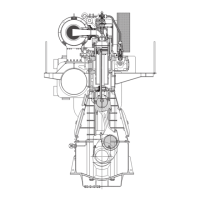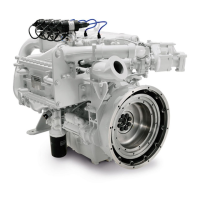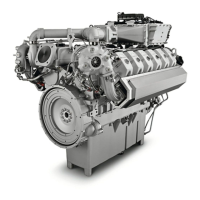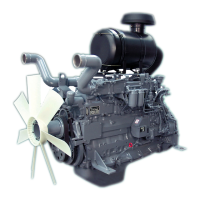MAN B&W 18.06
Page of 5
MAN Diesel
MAN B&W ME/MEC/MEGI engines 198 67 265.1
Bearing Wear Monitoring System
The Bearing Wear Monitoring (BWM) system mon-
itors all three principal crank-train bearings using
two proximity sensors forward/aft per cylinder
unit and placed inside the frame box.
Targeting the guide shoe bottom ends continu-
ously, the sensors measure the distance to the
crosshead in Bottom Dead Center (BDC). Signals
are computed and digitally presented to computer
hardware, from which a useable and easily inter-
pretable interface is presented to the user.
The measuring precision is more than adequate to
obtain an alarm well before steel-to-steel contact
in the bearings occur. Also the long-term stability
of the measurements has shown to be excellent.
In fact, BWM is expected to provide long-term
wear data at better precision and reliability than
the manual vertical clearance measurements nor-
mally performed by the crew during regular serv-
ice checks.
For the above reasons, we consider unscheduled
open-up inspections of the crank-train bearings to
be superuous, given BWM has been installed.
Two BWM ‘high wear’ alarm levels including devi-
ation alarm apply. The rst level of the high wear /
deviation alarm is indicated in the alarm panel only
while the second level also activates a slow down.
The Extent of Delivery lists four Bearing Wear
Monitoring options of which the two systems from
Dr. E. Horn and Kongsberg Maritime could also
include Bearing Temperature Monitoring:
4 75 142 Bearing Wear Monitoring System XTSW.
Make: AMOT
4 75 14
Bearing Wear Monitoring System BDMS.
Make: Dr. E. Horn
4 75 144 Bearing Wear Monitoring System PS-10.
Make: Kongsberg Maritime
4 75 147 Bearing Wear Monitoring System OPEN-
predictor. Make: Rovsing Dynamics
ME, ME-C and ME-GI engines are as standard spe-
cied with Bearing Wear Monitoring for which any
of the above mentioned options could be chosen.
Water In Oil Monitoring System
In case the lubricating oil becomes contaminated
with an amount of water exceeding our limit of
0.2% (0.5% for short periods), acute corrosive
wear of the crosshead bearing overlayer may oc-
cur. The higher the water content, the faster the
wear rate.
To prevent water from accumulating in the lube
oil and, thereby, causing damage to the bearings,
the oil should be monitored manually or automati-
cally by means of a Water In Oil (WIO) monitoring
system connected to the engine alarm and moni-
toring system. In case of water contamination
the source should be found and the equipment
inspected and repaired accordingly.
The WIO system should trigger an alarm when
the water content exceeds 0.%, and preferably
again when exceeding 0.5% measured as abso-
lute water content.
Some WIO systems measure water activity, ie
the relative availability of water in a substance
expressed in aw on a scale from 0 to 1. Here, ‘0’
indicates oil totally free of water and ‘1’ oil fully
saturated by water. The correlation to absolute
water content in normal running as well as alarm
condition is as follows:
Engine condition Abs. water Water
content, % activity, wa
Normal running 0 - 0.2 0 - 0.7
Low alarm level 0. 0.8
High alarm level 0.5 1.0
ME, ME-C and ME-GI engines are as standard
specied with Water In Oil monitoring system.
Please note: Corrosion of the overlayer is a poten-
tial problem only for crosshead bearings, because
only crosshead bearings are designed with an
overlayer. Main and crankpin bearings may also
suffer irreparable damage from water contamina-
tion, but the damage mechanism would be differ-
ent and not as acute.
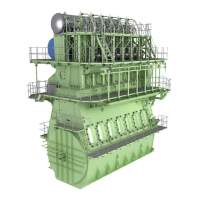
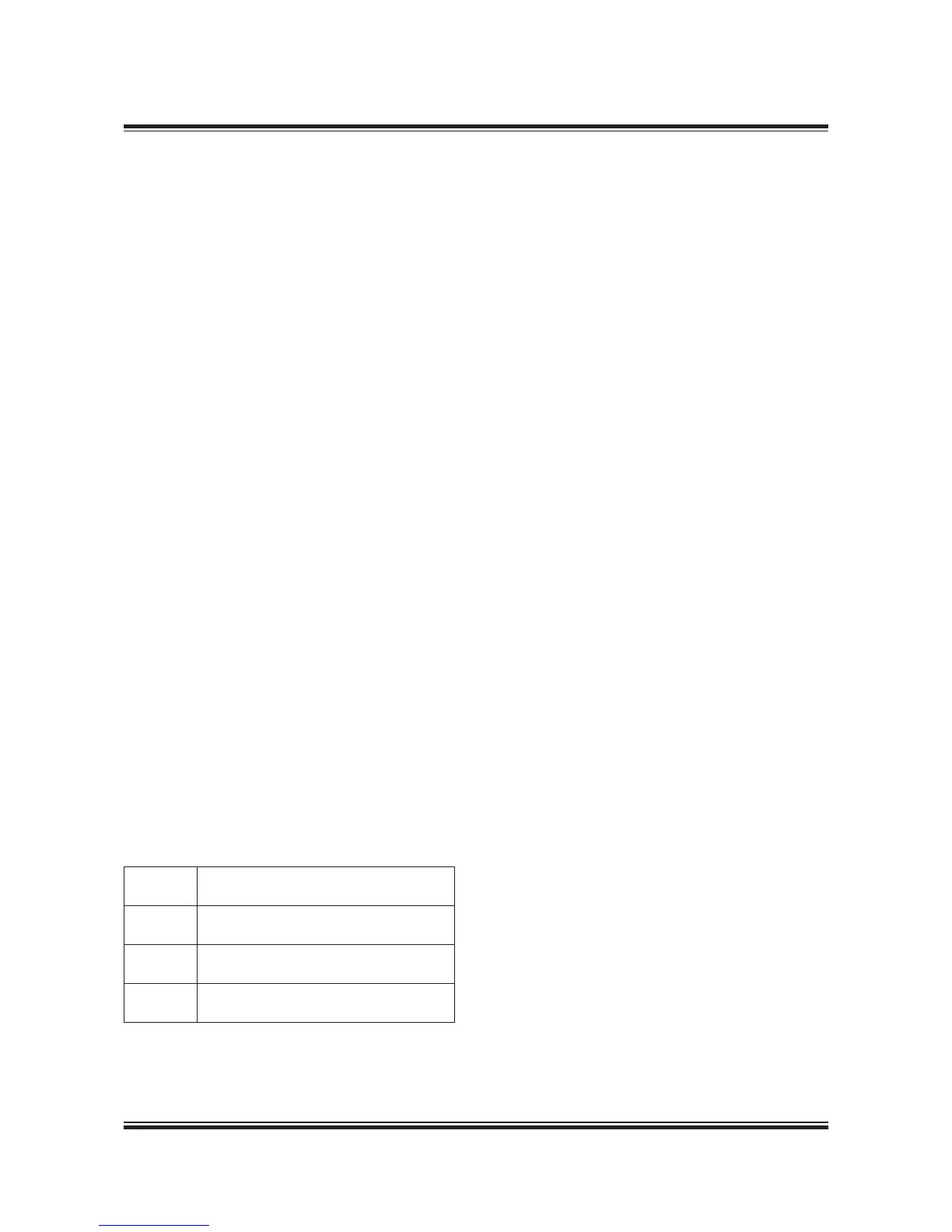